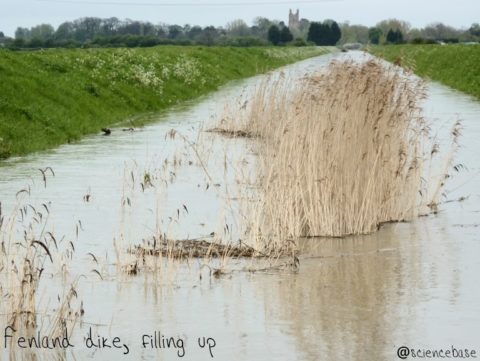In Separated by a Common Language, Lynne Murphy, aka Lynne Guist, discusses the commonality and occasional lack thereof between British English and American English (which, funnily enough, was the topic of my very first publicly published piece in a company newsletter back in early 1989).
In Lynne’s latest post she discusses the differences between a levee, a dike and an embankment, and whether or not Amercuns or Brits are prudish about using the term dike (Neither faction is as far as I know).
Â
Personally, I can’t say I’ve ever referred to the dikes here in The Cambridgeshire Fens (and there are lots of dikes around here, most of them Dutch), as embankments and definitely not levees. Other than those of us living in the Fens, I don’t think many Brits think about dikes in that way at all…

Â
Here’s an important point though, some Brits of a certain age may know the word levee, from the Led Zeppelin version of the 1929 Kansas Joe McCoy and Memphis Minnie blues number When the Levee Breaks although when I was a kid listening to Four Symbols, I assumed they were singing about some kind of pier (not a wharf, not a jetty, and definitely not an embankment) rather than a raised strip of Earth to protect a place from the river flooding or the tide turning.
Â
And, therein is the etymology of levee (common in New Orleans, of course) It’s simply from the French terre levée, meaning elevated earth, raised ground, in other words. So, when talking of levees one is really just saying raised or elevated without actually qualifying what it is that is being raised. Embankment on the other hand comes from “to enclose with a bank”, as in river bank, nothing more nothing less. Dike derives not too circuititously from old English for ditch, dic. Middle Dutch dijc meaning mound, dam, pool, or dam and German Deich meaning embankment.
There is a little confusion that persists (as you can see in that etymology) as to whether referring to the dikes that help keep The Fens dry means the ditches full of water or the embankments that form the sides of the ditches and elevate the earth. Maybe we should all stick with the full French phrase to avoid confusion.
Now, don’t get me started on lodes and droves…